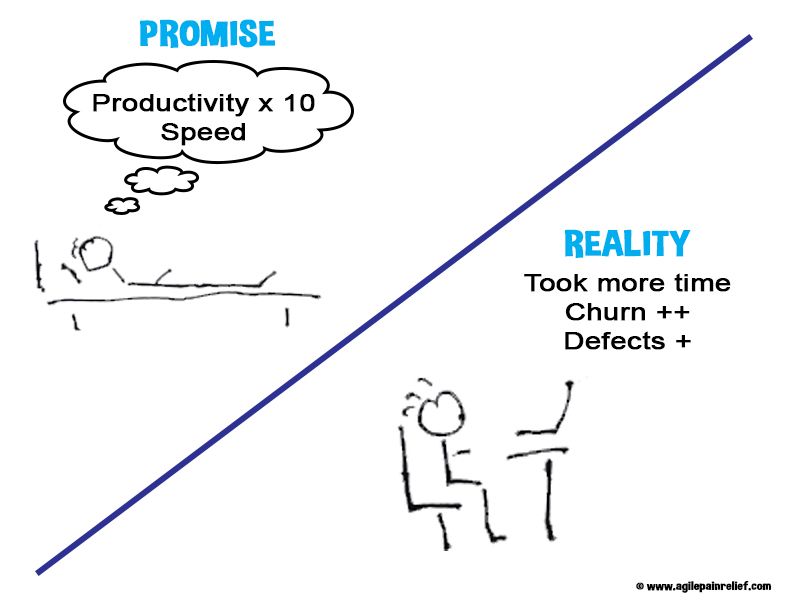Behaviour Driven Development [BDD]
Behaviour Driven Development (or BDD) is an approach that gets team members to collaborate on describing the behaviours of the user story or product feature they’re attempting to build. The behaviours are described with a series of examples, written in a language that users would be able to understand, that each prove one point about the feature or User Story. The examples can then be automated to provide acceptance tests that prove the expected behaviour, before the code is written. However, even if the examples can’t be automated, there is great value in collaborating on the examples before the code is written.
BDD improves quality and reduce defects since it ensures that several team members agreed on the problem that needed solving. BDD doesn’t replace Exploratory and other forms of Testing.
BDD was also know as Acceptance Test Driven Development at one time.
Agile Pain Relief Blog Entries
- Example Mapping: Your Secret Weapon for Effective Acceptance Criteria
- Scrum By Example – Waiting Too Long to Create Acceptance Criteria
- Scrum By Example – The Team Collaborate on Acceptance Criteria
- Definition of Done vs. User Stories vs. Acceptance Criteria
- Scrum Anti-Patterns: The Hardening Sprint
Resource Links
- Before BDD there was ATTD ATDD Vs. BDD Vs. Specification By Example Vs ….
- ATDD From the Trenches
- BDD and the New Model for Testing - a presentation
- BDD and User Story Specification: Examples
- The Beginner’s Guide to BDD
- A case study for BDD in improving throughput and collaboration
- Developing Microservices with Behavior Driven Development and Interface Oriented Design
- Introducing BDD
- Oh Behave! Behavior-Driven Development with Cucumber - a presentation
- Real-World BDD
- Specification by Example, 10 years later
- Specification By Example and Product Quality
- Specification By Example Summary on Wikipedia
- Three top tips for using Given When Then
- Who writes the Cucumber scenarios?
Anti-Patterns for Behaviour Driven Development:
Tools
- Concordion - a tool for creating living documentation. (I.E. Documents or examples that are written in text, but run automated test cases)
- Cucumber - (versions have been ported to most programming languages/platforms)
- Reqnroll is an open-source Cucumber-style BDD test automation framework for .NET. It has been created as a reboot of the SpecFlow
- RobotFramework - keyword-driven test automation - can be used with examples driving the tests
- Serenity BDD is an open-source library that aims to make the idea of living documentation a reality.
Related Books
- Specification by Example - Gojko Adzic - the original book on the subject - focuses entirely on people and collaboration
- BDD in Action - Behavior-Driven Development for the whole software lifecycle - John Ferguson Smart
- The BDD Books - Discovery - Explore behaviour using examples - Seb Rose and Gáspár Nagy
- The BDD Books – Formulation - Document examples with Given/When/Then - Seb Rose and Gáspár Nagy
- Behavior-Driven Development with Cucumber: Better Collaboration for Better Software - Richard Lawrence, Paul Rayner - Good for non-Technical and Technical readers
- The Cucumber Book: Behaviour-Driven Development for Testers and Developers - Matt Wynne, Aslak Hellesoy and Steve Tooke
- The Cucumber for Java Book: Behaviour-Driven Development for Testers and Developers - Seb Rose, Matt Wynne and Aslak Hellesoy
